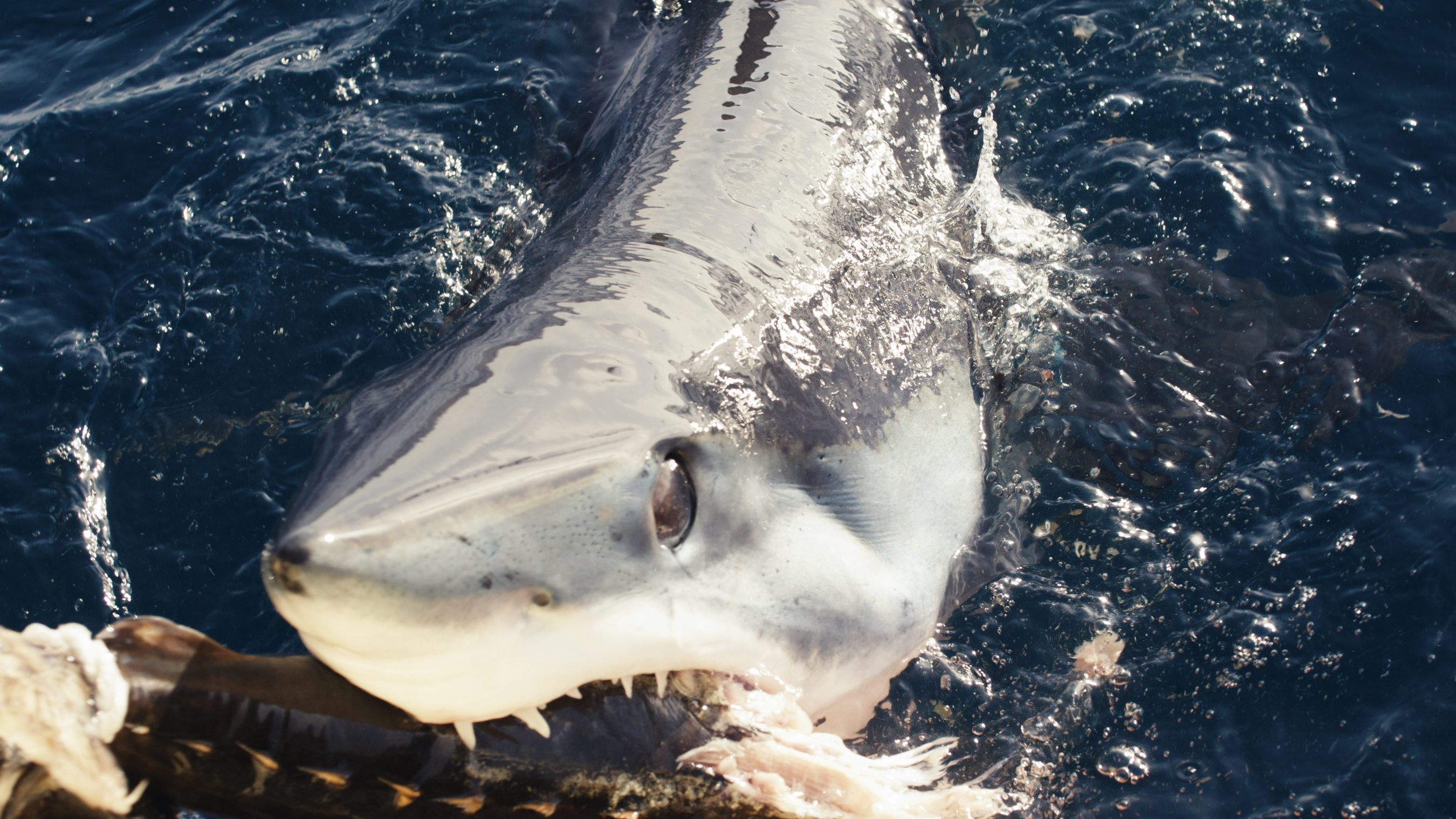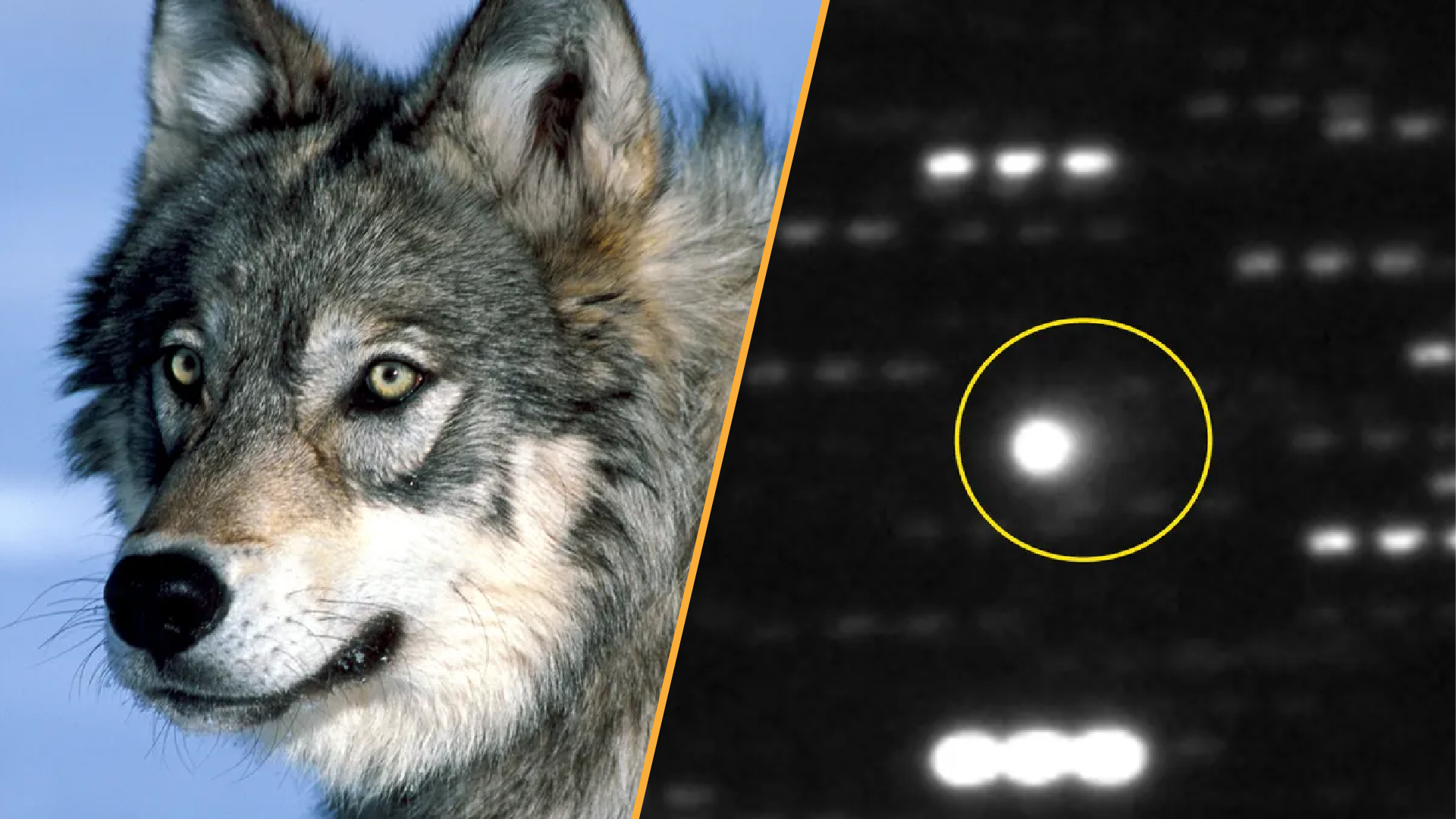T4K3.news
Shark Week team discovers unusual black makos off California coast
The discovery of black makos off California prompts a new investigation into their identity and behavior.

A Shark Week special explores the enigmatic black makos discovered off California.
Discovery of black makos raises questions about shark species
In 2019, Keith Poe, a shark tagger, encountered an unusually large shark dubbed a "black mako" off the California coast. This sighting forms the basis of the new Shark Week show "Black Mako of the Abyss," where a team of researchers aims to identify these unique creatures. Their adventure, featuring marine experts and a shark attack survivor, includes luring sharks to examine their characteristics and possibly collect genetic samples. The black makos resemble a mix between shortfin and longfin makos, leading to speculation about hybridization or genetic mutations. However, experts argue that hybridization is unlikely due to reproductive barriers between species. Whether these creatures are longfins adapting to new environments or a mutation of shortfins still remains a mystery, highlighting the ever-changing dynamics of marine life.
Key Takeaways
"One thing we know about sharks is that differences in external appearance can be misleading."
This highlights the difficulty in accurately identifying shark species based on appearance alone.
"I think it's possible that these black makos that we're seeing are actually just longfin makos."
This suggests that environmental factors may influence shark distribution more than previously thought.
"Genetic analyses would be needed to answer these questions about the unusual makos found by the group."
This emphasizes the importance of scientific research in understanding marine diversity.
"Hybridization can and does occur in nature, but often only in restricted regions of species overlap called hybrid zones."
This explains the complexities surrounding the possibility of hybrid sharks in the wild.
The discovery of black makos challenges existing knowledge about shark species in California waters. Changes in ocean temperature and habitat disruption may influence shark behavior and distribution, particularly as environmental shifts force species to adapt. This situation underscores the need for scientific inquiry into less-studied shark populations like the longfin mako. As climate change progresses, understanding these dynamics can help conserve marine ecosystems and maintain the delicate balance of ocean life.
Highlights
- Black makos might rewrite what we know about shark species.
- Climate change could shift the habitats of elusive sharks.
- Are these black makos a sign of changing ocean ecosystems?
- Understanding hybrid sharks could change our perspective on marine life.
Potential implications of shark hybridization
The possibility of hybridization between shortfin and longfin makos raises concerns about biodiversity and ecological stability. Genetic studies could impact conservation efforts and inform policy decisions regarding marine life.
The investigation into black makos highlights the evolving nature of marine biology and species adaptation.
Enjoyed this? Let your friends know!
Related News

Shark Week 2025 Starts Tonight

Wolves Revive Yellowstone Forests

Merseyside jails 66 criminals in July

Study reveals link between body temperature and depression

Newsom plans response to Texas redistricting

BBC's Destination X premiere sparks viewer disappointment

Scandalous memoir about Gloria Grahame released

Unique college football mascots ranked for entertainment
